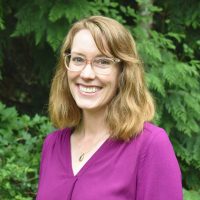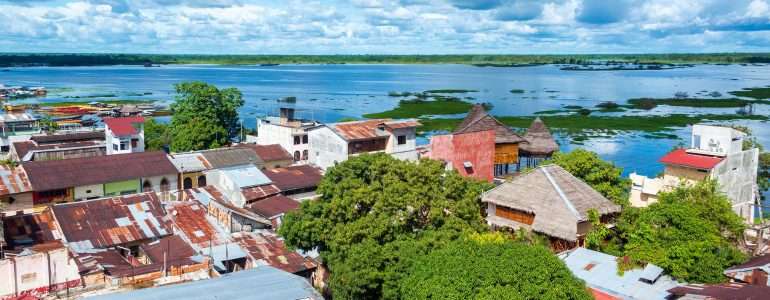Healing Amazonian Soils with Science and Indigenous Artisanry: Implementing Community-Based Composting System in the Urban Amazon
November 2024 Update
Overview:
Iquitos, a city with half a million people in the Peruvian Amazon, faces significant waste management challenges. With an unreliable waste collection system, waste accumulation negatively impacts ecosystems, public health, and water sources, particularly affecting vulnerable Indigenous communities living on river floodplains. 60% of this waste is organic and compostable. This project, a collaboration between a multidisciplinary team of researchers from the University of Washington (UW), Peruvian researchers, young activist residents from Iquitos, and the Kukama Indigenous community, aims to design and implement a city-wide composting system to address these issues.
Goals:
- Design a Composting System: Develop a composting system tailored to the context of Iquitos, including phases, timelines, chemical and biological components, and organizational structure.
- Establish an Implementation Framework: Create a framework for implementing the composting system in Iquitos, considering variables such as acceptability, adoption, appropriateness, cost, feasibility, fidelity, and sustainability.
Approach:
The project adopts a “design thinking” approach, starting with documenting community stakeholder perspectives. The academic team will research and experiment with composting systems in situ and then organize co-creation sessions with Iquitos residents and the Kukama community to design the composting system and implementation plan.
Research Focus:
- Empathize: Conduct participatory sessions, focus groups, and interviews to understand the challenges of composting at home and large-scale implementation from the perspectives of Iquitos residents and Kukama artists.
- Define: Lead literature reviews and collect data to develop the composting system and implementation frameworks, incorporating community-based variables.
- Ideate: Organize brainstorming sessions and community workshops to co-create the composting system and implementation framework, with Kukama artists co-leading the design of compost bins and other elements.
- Prototype: Conceptualize and build the compost system components and implementation framework for testing in real-life conditions.
- Test: Implement the composting system in 30 households in Iquitos, assessing performance, community-based variables, health and hygiene practices, and implementation outcomes over eight months.
Why It Matters:
The project aims to address environmental justice and provide alternative economic opportunities to vulnerable Indigenous communities while promoting urban reforestation efforts and mitigating climate change impacts.
Activities:
- Participatory Sessions and Workshops: Engage with community stakeholders to gather insights and document traditional pottery crafting processes.
- Research and Data Collection: Develop composting system elements and processes in controlled conditions and define a theoretical implementation framework.
- Co-Creation Sessions: Collaborate with community members and Kukama artists to design the composting system and implementation framework.
- Pilot Implementation: Introduce the composting system in 30 households, provide training and educational materials, and monitor the system’s performance.
Expected Outcomes:
- Sustainable Composting System: A city-wide composting system tailored to the context of Iquitos.
- Implementation Framework: A framework that ensures the system’s acceptability, adoption, and sustainability.
- Improved Environmental and Public Health: Reduced waste accumulation, improved water quality, and enhanced public health in Iquitos.
- Economic Opportunities: Alternative economic opportunities for the Kukama Indigenous community through the production and sale of compost bins.
Dissemination of Findings:
The results of the pilot will be compiled in a final report and presented in seminars at the National University of the Peruvian Amazon and the University of Washington, with the participation of the Kukama community and Iquitos residents. The partnership will continue to work on the long-term vision and use the pilot’s results to plan the next steps for expanding the program city-wide.
Research Team:
Community Lead: Leydiana Menacho, Community Leader, Kukama Compost
UW Co-Investigators:
Rebecca Neumann, Associate Professor, UW Seattle College of Engineering, Civil and Environmental Engineering
Joseph Zunt, Professor, UW Seattle School of Public Health, Global Health
Rebecca Bachman, Lecturer, UW Seattle College of Built Environments, Landscape Architecture
UW Student: Coco Alarcon, a PhD student, UW Seattle School of Public Health, Global Health and Implementation Science
Collaborators:
Sally Brown, Academic Collaborator, Research Professor, UW Seattle College of the Environment, School of Environmental and Forest Sciences
Ranulfo Segundo Meléndez Celis, Research Professor
EarthLab Contact:

